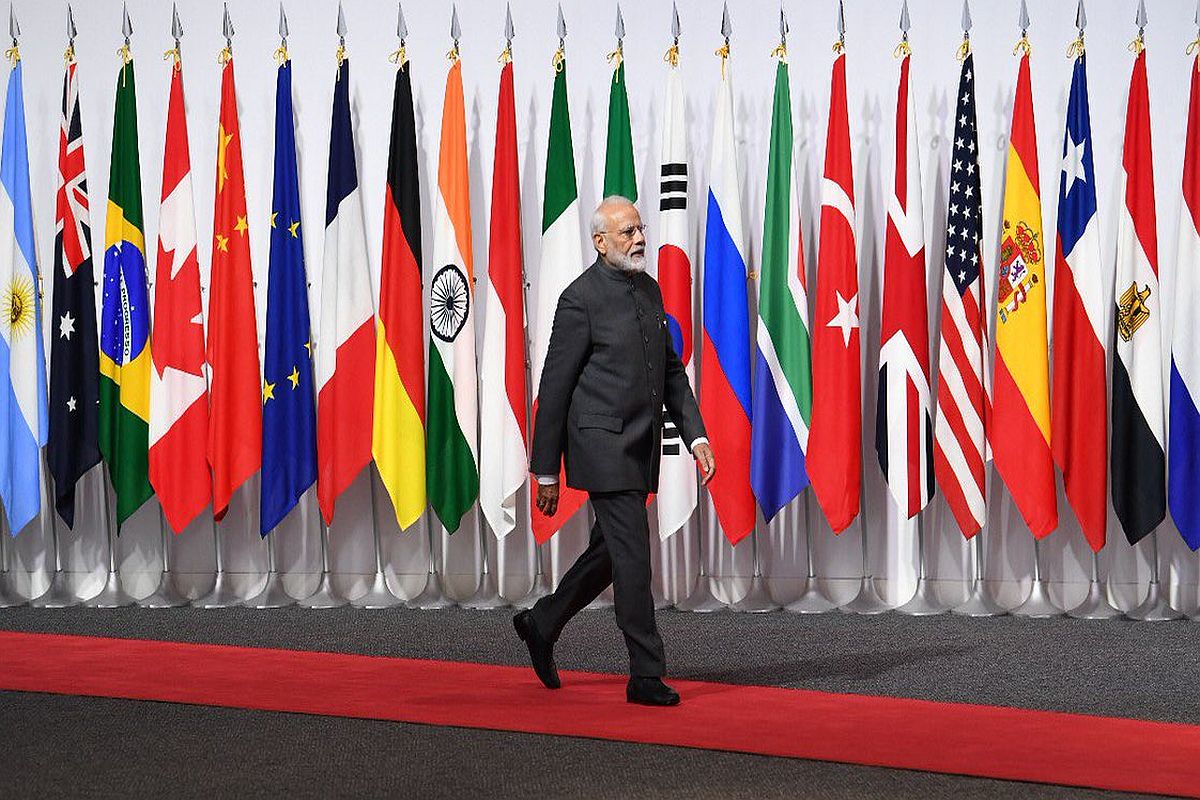G20 Summit: PM Modi enjoys a $3.8 trillion market moment as G-20 leaders fly in

G20 Summit: PM Modi enjoys a $3.8 trillion market moment as G-20 leaders fly in
A US official remarked today that the absence of President Xi Jinping from the annual G20 summit in New Delhi could only be clarified by China. This statement was made as the two-day G20 Summit in 2023 commenced in Delhi. The summit had initially been viewed as an opportunity for a potential meeting between President Xi and US President Joe Biden, reflecting ongoing efforts by both global powers to repair strained relations resulting from trade disputes and geopolitical tensions.
This situation underscores the significance of President Xi’s absence and the potential implications it may have for diplomatic relations and global geopolitics. It also highlights the importance of China’s role in providing clarity regarding President Xi’s decision to not attend the summit, which was widely anticipated as a potential venue for high-level discussions aimed at addressing international issues and improving bilateral ties between China and the United States.

Jon Finer, the US deputy national security adviser, emphasized that the responsibility lies with the Chinese government to clarify the reasons behind its leader’s decision to either participate or abstain from the event. He made these comments during a press briefing in the Indian capital. Finer noted that while the United States is frequently asked to provide explanations for the actions of the Chinese government, it is not their primary role to do so. He also expressed disappointment if China were not fully committed to the success of the group.
This statement underscores the expectation for transparency from China regarding its leader’s participation in the event, highlighting the importance of China taking an active role in addressing concerns and contributing to the success of international gatherings like the G20 Summit. Additionally, it emphasizes that while the United States is often called upon to explain Chinese actions, the responsibility for explaining decisions related to the summit primarily rests with China itself. This underscores the significance of open communication and collaboration among nations within the bloc.
There has been speculation that China’s decision to not participate in the G20 Summit might suggest a shift in its global strategy. Some observers have suggested that China could be moving away from the G20 and focusing more on creating an alternative world order, possibly prioritizing other groupings like the BRICS.
This speculation was mentioned by Jon Finer, who raised the possibility during discussions about China’s absence from the summit. Premier Li Qiang is leading China’s delegation at the G20 Summit in New Delhi, but notably, President Vladimir Putin of Russia is also absent. Instead, Russia is being represented by its Foreign Minister, Sergei Lavrov.
This situation raises questions about the dynamics within global diplomacy, as it involves two major world powers, China and Russia, and their level of engagement with international forums like the G20. It suggests potential shifts in geopolitical strategies and the importance of these countries’ roles in shaping the future of international relations. The absence of top leaders from these nations and the choices they make regarding representation at such summits can have significant implications for global politics and cooperation.
On September 8, President Biden arrived in Delhi to attend the G20 Summit. However, on September 3, when it was first announced that President Xi Jinping would not be attending the G20 summit, President Biden expressed his disappointment but also indicated his intent to engage with him on other occasions.
It’s worth noting that India, as the host country of the summit, along with the subsequent host nations Brazil and South Africa, as well as the United States, have all expressed their commitment to ensuring the success of the G20 Summit. This commitment to the summit’s success was reiterated by Jon Finer.
Finer also pointed out that if China does not share this commitment, it would be unfortunate for everyone involved in the G20 process. He emphasized that while such a situation would have adverse consequences for China, the broader international community also stands to lose out if one of the world’s major powers does not actively participate in efforts to address global challenges through multilateral forums like the G20. This underscores the significance of China’s engagement in global diplomacy and its impact on the global stage.




